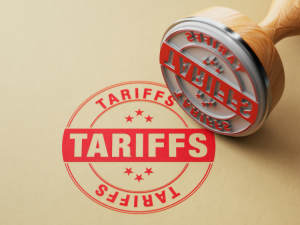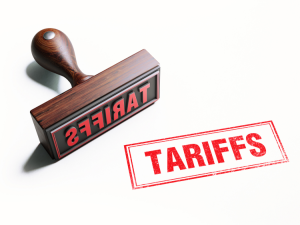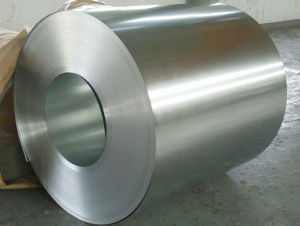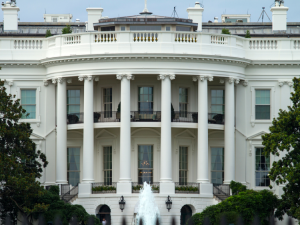
Canadian industry decries tariffs as economic attack in Trump-imposed trade war
“It is completely shocking for the United States to treat a long-time and fair trading partner in this manner,” the Canadian Steel Producers Association said.

“It is completely shocking for the United States to treat a long-time and fair trading partner in this manner,” the Canadian Steel Producers Association said.

The Association of Equipment Manufacturers slammed the use of "broad and indiscriminate" penalties.

Steel Manufacturers Association (SMA) President Philip K. Bell stressed a mood of "cautious optimism" for steel on what turned out to be Tariff Eve.

SMU’s Monthly Review provides a summary of key SMU steel market metrics for the previous month, with the latest data updated through February 28th.

Raw steel mill production declined last week to one of the lowest levels seen this year, according to recent figures released by the American Iron and Steel Institute (AISI).

President Trump reaffirmed Monday afternoon that his 25% universal tariff on all imports from Canada and Mexico would take effect on Tuesday. “Tomorrow – tariffs 25% on Canada and 25% on Mexico. And that’ll start,” Trump told reporters Monday, according to an Associated Press report. “They’re going to have to have a tariff.”

While Congress has given the president enormous power over trade policy, the president wants to test the limits of that authority. If there are no guardrails, our economic and political liberty may be on the block. Stay tuned.

Increased protectionism is expected to continue to drive up steel prices in the US and Europe.

That’s not to say Section 232 shouldn’t be tightened up. Or that certain trade practices – even among our traditional allies – weren’t problematic. But when it comes to the reboot of Section 232, I do wonder whether there will be some unintended consequences.

On Thursday morning, Trump posted on Truth Social about Canada and Mexico: “the proposed TARIFFS scheduled to go into effect on MARCH FOURTH will, indeed, go into effect, as scheduled.”

The Leveling the Playing Field Act 2.0 has been reintroduced into both houses of Congress

Prices for six of the seven steelmaking raw materials SMU tracks are increased from January to February, according to our latest analysis.

President Trump has directed Commerce Secretary Howard Lutnick to investigate copper imports into the US under Section 232 of the Trade Expansion Act of 1962 on national security grounds.

It won't be so easy to restart idled aluminum production in the US, AMU says.

President Donald Trump indicated in a cabinet meeting Wednesday that a 25% blanket tariff on all imports is coming for the EU next.

On Monday and Tuesday of this week, SMU polled steel buyers on an array of topics, ranging from market prices, demand, inventories, imports and evolving market events.

As February comes to a close this week, the scrap markets are poised for another – and perhaps more extreme – move upward in March. March is usually a month when scrap prices relent as winter’s impediments subside. That’s not the case this year. And this time, the driver of prices will be increased demand from mills along with restricted flows over the last two months.

Tuesday, March 4, marks the end of a 30-day delay in the levies.

The US steel market has whipsawed upward on the prospect of expanded Section 232 tariffs of 25% being applied to imported steel - including downstream goods - on March 12. It seems pretty clear that domestic steel mills have the ear of the Trump administration when it comes to Section 232. The result? The much-anticipated Trump bump has finally arrived - and then some.

Do we want the benefits of the Section 232 tariffs to flow to the bottom lines of foreign steel and aluminum producers or to the US government and, ultimately, domestic manufacturers and their workers? In our view, the answer is simple. Section 232 exceptions do nothing more than lead to underserved profits for foreign manufacturers who are harming the US industrial base. That revenue could be used to pursue the Trump administration’s other policy priorities - such as deficit reduction or expanded tax cuts.

SMU’s Current Buyers’ Sentiment Index rocketed up this week, while the Future Buyers’ Sentiment Index edged down. The two indices are almost at parity.

Some of you have told me that the current market feels about as crazy as early 2021 when demand snapped back after the initial outbreak of the Covid-19 pandemic. Others have said it might be more like late February/early March 2022, when Russia launched a full-scale invasion of Ukraine – and, in the process, caused […]

SMU Community Chat with CRU's Josh Spoores.

"Recent activity in the marketplace strongly indicates that these imports are being rushed into the United States in an effort to avoid the imposition of antidumping duties," petitioners said.

Buyers responding to our latest market survey reported that steel mill lead times were stretching out this week for sheet and plate products tracked by SMU. The results weren’t much of a surprise. Production times have begun moving out following a wave of frenzied buying in response to stricter Section 232 announced by the Trump […]

Mills’ flexibility on price for spot orders has taken a nosedive to levels not seen since the end of March 2023.

It’s been an eventful (and chaotic) start to the year for steel and aluminum as industry tries to navigate new Trump administration.

The European Commission is looking into making current quotas on steel imports stricter as a countermeasure to President Trump’s recently announced tariffs on steel and aluminum imports to the US, according to an article in Reuters.

To say we’ve entered a “Brave New World” since Jan. 20 might be an exaggeration, but we’ve definitely entered a different one.

President Donald Trump said last week that he could place tariffs on auto imports, according to an article in Politico.